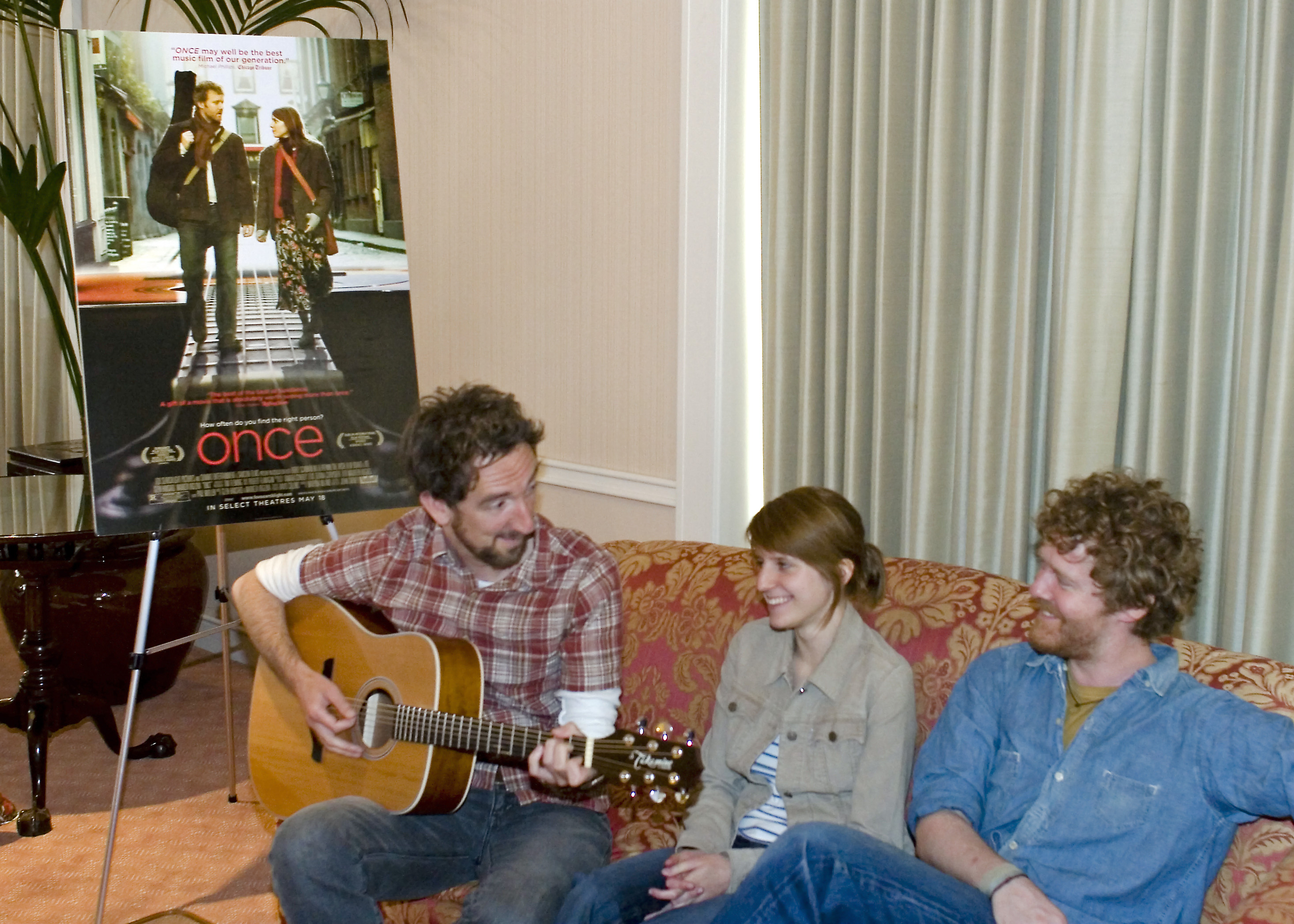
I spoke with Sington this morning, and while the bulk of the interview won't run until ThinkFilm releases the picture in September, some of his words are certainly worth relaying now. "Nine have set foot on a different world and looked back at the [Earth]," said the director, "and I was very interested in talking about what that experience was like. What it felt like, what they thought it meant - both at the time and then later - and what it all means to them today."
"And that, really, is what the film is all about. It's not really about the history of the Apollo Missions, it is about a group of men who had an extraordinary human experience which sets them apart from the rest of humanity."
"What they have, is a very clear perspective on the Earth and the human condition. They have seen our context in the universe in a way the none of the rest of us have. And the effect of that, actually, is that it makes them, excuse the bad pun, more grounded as individuals. I think they understand the ground that they tread quite literally for the rest of their lives in a way the rest of us don't quite. They've seen our place in the universe, our one very small place. I think that makes them more profoundly down to earth about what we are and where we are then the rest of us."
Needless to say, In the Shadow of the Moon is a spectacular marvel both intellectually and spiritually. Again, the rest of my interview with Sington won't appear until sometime in August, but his film is just so good I felt it would be almost criminal if I didn't share a little bit of it with you all now.
 On the negative side of things, I saw my first outright SIFF stinker this evening. I've viewed interesting disappointments (like Angel-A), oddly unsatisfying enigmas featuring strong performances and frustratingly inane narratives (like with Outing Riley) and even nonsensical visual spectaculars impossible to dismiss even if I didn't know what the heck was going on (like in Timur Bekmambetov's sci-fi sequel Day Watch). But no total failures. None, that is, until tonight. (In regards to that middle one, if Waitress and Serenity hadn't already proven it, Nathan Fillion is a total stud. He's also a mighty fine actor, too.)
On the negative side of things, I saw my first outright SIFF stinker this evening. I've viewed interesting disappointments (like Angel-A), oddly unsatisfying enigmas featuring strong performances and frustratingly inane narratives (like with Outing Riley) and even nonsensical visual spectaculars impossible to dismiss even if I didn't know what the heck was going on (like in Timur Bekmambetov's sci-fi sequel Day Watch). But no total failures. None, that is, until tonight. (In regards to that middle one, if Waitress and Serenity hadn't already proven it, Nathan Fillion is a total stud. He's also a mighty fine actor, too.) David Wain's The Ten is absolutely wretched. Mostly known for writing for television comedies like Mad TV and Strangers with Candy, he's also appeared as an actor in movies as unvaried as Reno 911: Miami and The Baxter. Featuring an all-star cast including Winona Ryder, Paul Rudd (deserving of so much more after is splendid work in Knocked Up), Liev Schrieber, Adam Brody, Jessica Alba, Oliver Platt, Famke Janssen, Justin Theroux and Gretchen Mol, this has got to be one of the unfunniest sketch comedies I've ever had the misfortune to see. This might even be worse than SIFF 2006's Awakening from the Dead, and for anyone who remembers how much I loathed that one you can imagine then what I'm feeling about this.

Thankfully the rest of my festival has been far more wondrous. While I haven't seen as much as I would like to at this point, what I have seen by and large I have really enjoyed. Heck, last night's documentary Crazy Love was absolutely fascinating. Director Dan Klores' look at a seriously f**ked-up nearly four decade love affair is one of the most seriously twisted good times I've had in ages. Linda Riss and Burt Pugach meet, date, get engaged, break up, get back together and break up again. Then, after 14 years apart, they get together again and finally get married.
Oh, yeah, in the middle of all of this Burt hires some thugs to blind Linda, the whole thing talked about daily on the front pages of papers all over New York. It's the most hysterically unnatural love story this side of Jerry Springer. When they say truth is stranger than fiction, this is exactly the type of thing they are talking about. No matter how you look at it, though, stories like this one sure make for great cinema and that, my friends, is definitely just fine with me.

No comments:
Post a Comment